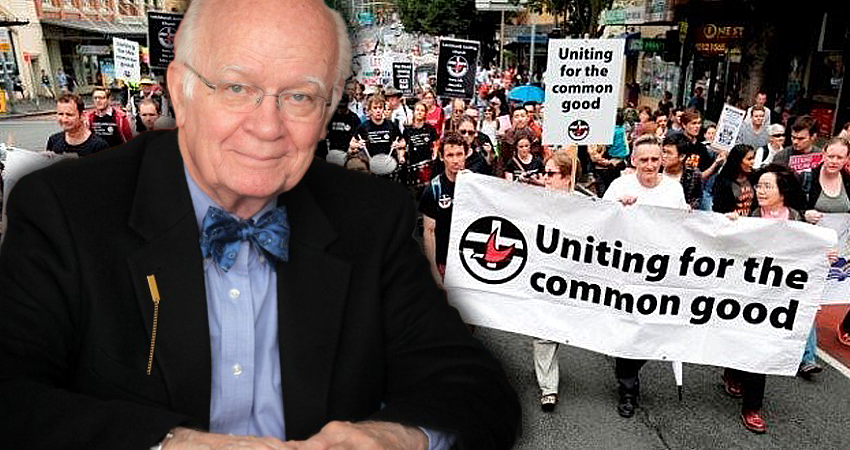It may seem rather far-fetched to link the wearing of a tee-shirt emblazoned with Uniting for the Common Good on your chest with the death of a Chicago-based theologian last week. There was a time when this turn of phrase was not widely used in this synod. It came into being in this form following an address by a Moderator to a synod meeting after he has read an article I had written on the relationship between a public theology and the Uniting Church. The link was Martin Marty who was once described as the one of the leading interpreters of religion in the United States. He died on 25 February at the age of 97.
It was Marty who coined the notion of a public church – and by extension, the need for a public theology. He made this call as the 1960s were giving way to the 1970s. He had become deeply concerned that the various denominations seemed to be turning their backs on working together in an ecumenical manner and addressing matters of public concern. They were become more interested in a privatized, personal faith and their own institutional well-being. Marty felt like the churches were retreated from their theological vocation and what they are actually called to be.
In his work on the public church Marty argued the need for the Christian life to be true to its foundational principles and not simply become, at best, a form of civil religion. He had a deep and abiding concern for the ideals of American’s shared pluralist heritage and what he perceived to be the fracturing of the nation.
He wrote and marched for the well-being on many fronts–civil rights, gender, against war, internationalism. He oversaw a project on fundamentalism. On his retirement the Divinity School named the research centre he had founded after him – the Martin Marty Center for the Public Understanding of Religion.
Which brings us back to that tee-shirt. Back around 2000 (perhaps a little before) United Theological College pioneered one of the first (if not the first in the world) degree on a public theology. The very first lectures were indebted to the work that Marty had done on why we need a public church, the difference between a public theology and civil religion and why the church needs to take seriously its public intellectual capacity and role.
Clive Pearson













